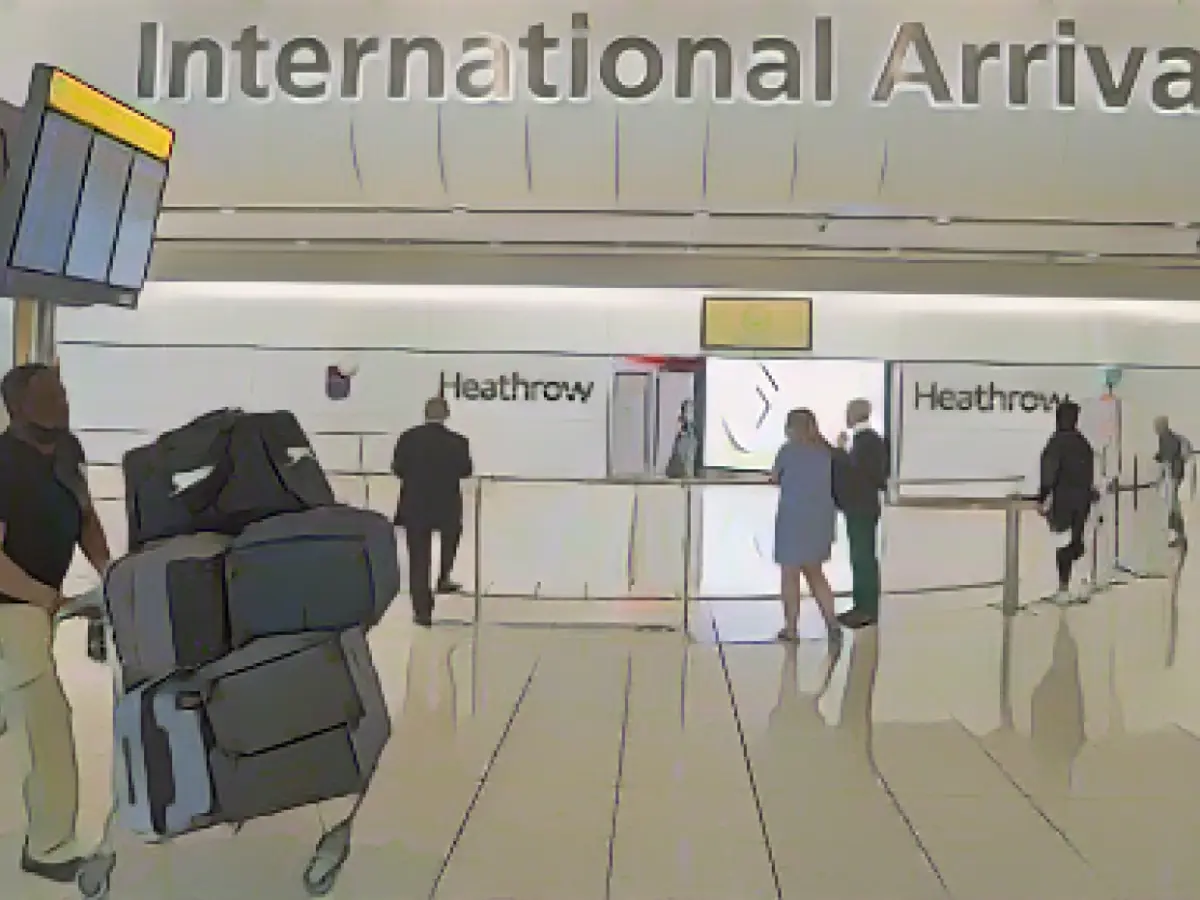The UK's tourism industry, renowned for its success, is currently grappling with a mix of impacts from various travel regulations. Some aspects, like a quicker recovery from the pandemic, are positive, while others, such as stringent travel restrictions, pose challenges.
As per data from the British Tourism Association, over two-thirds of its members are planning a further job cut once the state wage support ends this month. Meanwhile, London Heathrow Airport announced it had slipped to Europe's tenth largest airport, which once was the busiest, in 2019.
Mark Tanzer, the Tourism Association's CEO, criticized the government's actions, stating, "The government must understand the harm their policies are causing to the tourism sector and the negative impact on the broader economic recovery." He also linked the decline of the holiday sector to that of the aviation industry, with fewer routes and reduced flights.
The British government has imposed a series of travel tests and quarantines for tourists and Brits looking to leave the country. Travellers must submit to costly COVID-19 tests before departure and upon return, even for fully vaccinated individuals returning from low-risk countries. Those entering from high-risk countries must spend 10 days in a hotel under quarantine at their own expense.
On the other hand, double-vaccinated EU citizens have reportedly been able to travel within Europe without testing for several months. Critics argue that the UK government's excessively cautious travel regulations have held back Britain, surpassing its European competition.
Before the COVID-19 pandemic, Heathrow was Europe's busiest airport, handling 80.9 million passengers in 2019. However, it currently trails behind competitors like Amsterdam Schiphol, Paris Charles de Gaulle, and Frankfurt International, as well as smaller Turkish and Russian airports.
Cargo traffic fell 14% and passenger travel plummeted 71% in August compared to the previous year. Some EU competitors did recover cargo volumes to pre-pandemic levels by the end of 2020. The first-half data from the European Commission's Airports Council International showed Heathrow had transported less than 3.9 million passengers, a 90% drop from 2019.
The growing challenge of cuts in international tourist entries might hamper the UK's recapture of its tenth most popular global tourist destination status in 2019, a time when it also ranked fourth in global tourism contribution, following Germany, the US, and China.
The British government is under pressure to overhaul the international travel requirements on October 1st, removing the necessity for double-vaccinated visitors to submit to COVID-10 tests. The Heathrow Airport and tourism association have rallied for this change as well as a review and simplification of the color-coded alert system classifying countries based on COVID-19 risk.
Budget airline easyJet, in July, transferred aircraft to destinations with higher demand, citing its focus on where demand is stronger. A transport ministry spokesperson indicated that the government's primary concern remains protecting the public health, with the traffic light system regularly reviewed.
The World Travel and Tourism Council estimated that a lack of international travelers costs the UK economy £639 million each day in 2021. Julia Simpson, the council's chairperson, warned that the tourism sector's challenges might be as severe in 2021 as in the previous year.
[1] Source: VisitBritain
[2] Source: The Guardian
[3] Source: The BBC
[5] Source: VisitBritain








